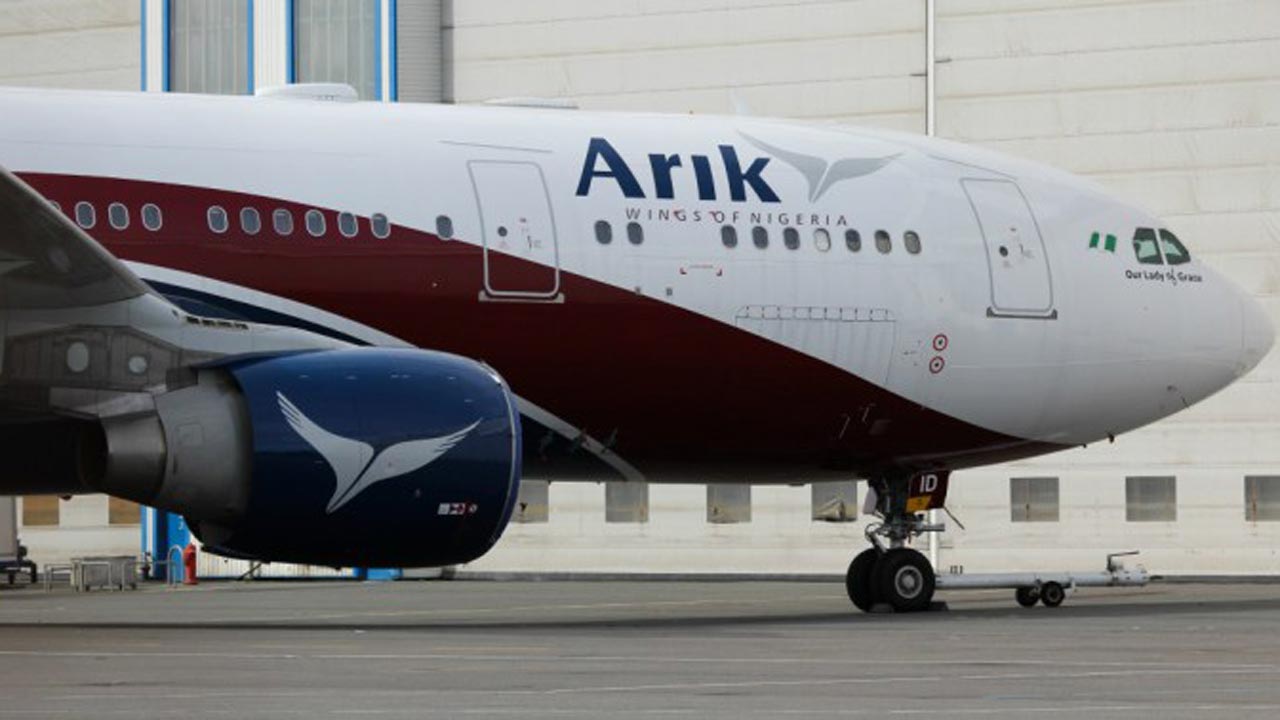- Arik Begins Charter Services at MMA2, Terminal 50% Utilised
Bi-Courtney Aviation Services Limited, operator of the Murtala Muhammed Airport Terminal Two, has said that the terminal is currently utilising only 50 per cent of its capacity.
The Head of Operations, BASL, Mr. Mobolaji Salu, stated on Monday that the terminal had the capacity to process over four million passengers annually but was only processing about two million.
Salu, who spoke to journalists during a tour of the facility, said the terminal was also ready to begin regional operations, having put in place the necessary facilities that met internationals standards, but had not been granted permission by the Nigerian Civil Aviation Authority.
These facilities, he said, included self-check-in counters, which had helped to speed up passenger processing time by a large percentage.
He said, “The MMA2 is designed to process four million passengers per annum and can be expanded, but we are currently doing only two million, which means the terminal is 50 per cent underutilised.
“We have everything ready for regional flights, because the terminal was designed for both domestic and regional flights; with offices and counters for all the necessary security agents, including an integration with the Nigeria Immigration Service system at the international airport.”
The Managing Director, BASL, Capt. Jari Williams, however, stated that the NCAA had granted the company approval to commence regional operations twice and had also cancelled the approval on both occasions.
He said the NCAA was being insincere with the excuse that domestic and regional flights could not be processed from the same terminal.
Williams added, “Abuja and Port Harcourt airports both process regional and domestic flights from the same terminal. Aviation is dynamic; it is all about integration.
“If we are going to move ahead with the dynamics of aviation, as it is all over the world, we need to look ahead. We are losing 50 per cent of our revenue due to the underutilisation of the terminal, because even the inactive areas are still regularly maintained.”
The Legal Adviser, BASL, Mr. Tola Oshobi, SAN, said the bone of contention between the company and the Federal Government was that the Federal Airports Authority of Nigeria had refused to obey the exclusivity clause in the concession agreement.
“At every point in time, we have never had exclusivity and over 50 per cent of domestic passengers are processed outside this terminal,” he said.
Oshobi said the company was open to an amicable settlement with the government having gone through the legal processes to fight for its right.
“But we cannot impose it on the government because the government has the obligation to honour the contractual agreement of the concession,” he added.
Meanwhile, the company has said that Arik Air has commenced charter services from the terminal due to customer demand.
Salu stated that the airline commenced the service about one month ago.
The BASL had in the past accused Arik and all the airlines operating at the General Aviation Terminal of being actively involved in FAAN’s act of illegality, given that they were all aware of the position of the law in respect of the ownership of the terminal.

 Billionaire Watch3 weeks ago
Billionaire Watch3 weeks ago
 Startups4 weeks ago
Startups4 weeks ago
 News4 weeks ago
News4 weeks ago
 News4 weeks ago
News4 weeks ago
 Bitcoin4 weeks ago
Bitcoin4 weeks ago
 Naira4 weeks ago
Naira4 weeks ago
 Forex3 weeks ago
Forex3 weeks ago
 Treasury Bills4 weeks ago
Treasury Bills4 weeks ago

























